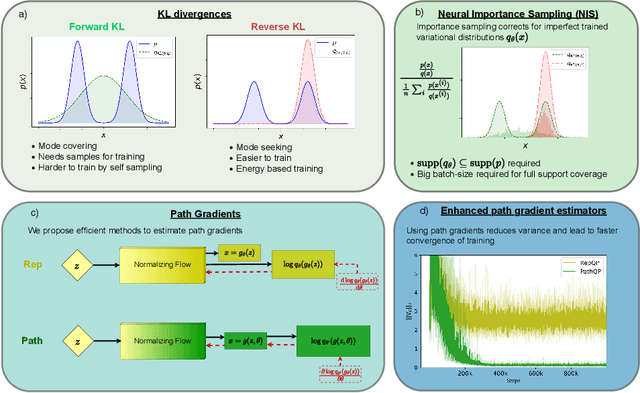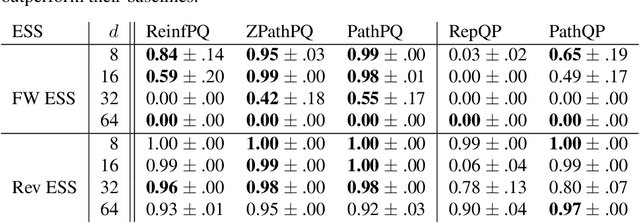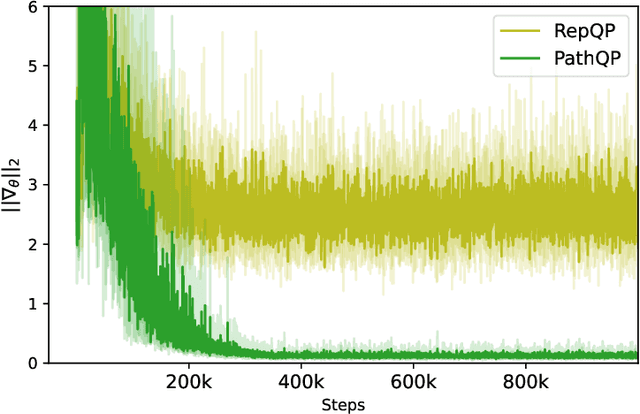Lorenz Vaitl
Path Gradients after Flow Matching
May 15, 2025Abstract:Boltzmann Generators have emerged as a promising machine learning tool for generating samples from equilibrium distributions of molecular systems using Normalizing Flows and importance weighting. Recently, Flow Matching has helped speed up Continuous Normalizing Flows (CNFs), scale them to more complex molecular systems, and minimize the length of the flow integration trajectories. We investigate the benefits of using path gradients to fine-tune CNFs initially trained by Flow Matching, in the setting where a target energy is known. Our experiments show that this hybrid approach yields up to a threefold increase in sampling efficiency for molecular systems, all while using the same model, a similar computational budget and without the need for additional sampling. Furthermore, by measuring the length of the flow trajectories during fine-tuning, we show that path gradients largely preserve the learned structure of the flow.
Fast and Unified Path Gradient Estimators for Normalizing Flows
Mar 23, 2024Abstract:Recent work shows that path gradient estimators for normalizing flows have lower variance compared to standard estimators for variational inference, resulting in improved training. However, they are often prohibitively more expensive from a computational point of view and cannot be applied to maximum likelihood training in a scalable manner, which severely hinders their widespread adoption. In this work, we overcome these crucial limitations. Specifically, we propose a fast path gradient estimator which improves computational efficiency significantly and works for all normalizing flow architectures of practical relevance. We then show that this estimator can also be applied to maximum likelihood training for which it has a regularizing effect as it can take the form of a given target energy function into account. We empirically establish its superior performance and reduced variance for several natural sciences applications.
Gradients should stay on Path: Better Estimators of the Reverse- and Forward KL Divergence for Normalizing Flows
Jul 17, 2022



Abstract:We propose an algorithm to estimate the path-gradient of both the reverse and forward Kullback-Leibler divergence for an arbitrary manifestly invertible normalizing flow. The resulting path-gradient estimators are straightforward to implement, have lower variance, and lead not only to faster convergence of training but also to better overall approximation results compared to standard total gradient estimators. We also demonstrate that path-gradient training is less susceptible to mode-collapse. In light of our results, we expect that path-gradient estimators will become the new standard method to train normalizing flows for variational inference.
Path-Gradient Estimators for Continuous Normalizing Flows
Jun 17, 2022



Abstract:Recent work has established a path-gradient estimator for simple variational Gaussian distributions and has argued that the path-gradient is particularly beneficial in the regime in which the variational distribution approaches the exact target distribution. In many applications, this regime can however not be reached by a simple Gaussian variational distribution. In this work, we overcome this crucial limitation by proposing a path-gradient estimator for the considerably more expressive variational family of continuous normalizing flows. We outline an efficient algorithm to calculate this estimator and establish its superior performance empirically.
 Add to Chrome
Add to Chrome Add to Firefox
Add to Firefox Add to Edge
Add to Edge